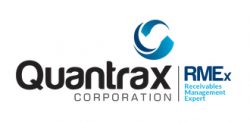The title may be misleading when you consider that everyone uses computer technology for debt collection. Unfortunately, all computerized systems are not automated systems.
Automation implies that humans have less control in areas that can or should be managed by a computer. Why is this important? Humans are incredible thinkers, but machines win when it comes to doing the same thing over and over again, managing very high volumes, remembering hundreds of rules, when decisions have to be made quickly and when they have to work at night, on weekends or holidays.
RMEx is automated collection software that attempts to make maximum use of modern computing power. Some of the things it will do are :
- Place accounts in the right classifications, add different collection costs and analyze the new accounts and make meaningful decisions even before anyone has had a chance to look at the new accounts
- Define the reports required by clients and their frequency. These reports can then be mailed, e-mailed or sent to a reporting platform without any user intervention
- Call and message frequency rules are managed by the system, whether we are talking about clients, states or cities
- Letters and phone calls are scheduled by the system, based on multiple rules and consumer demographic information
- The system can review some or all of the accounts in the system, on a daily basis, and make the same decisions as a collection manager with regard to working the accounts or giving up on them
- With potentially millions of accounts to be managed and worked, you can have the system analyze and group your accounts into a few, strategic dialer campaigns. All of this would happen with no management involvement
These are a few examples of what a well-designed, automated collection system can do for you. Automation also means you will have less paperwork. Single events would drive a series of actions, without the need for manual follow-up. As an example, a dispute on an inbound call should automatically trigger the correct credit reporting updates, a letter to the client, as well as stopping scheduled letters and any dialer calls that were planned for later in the day.
